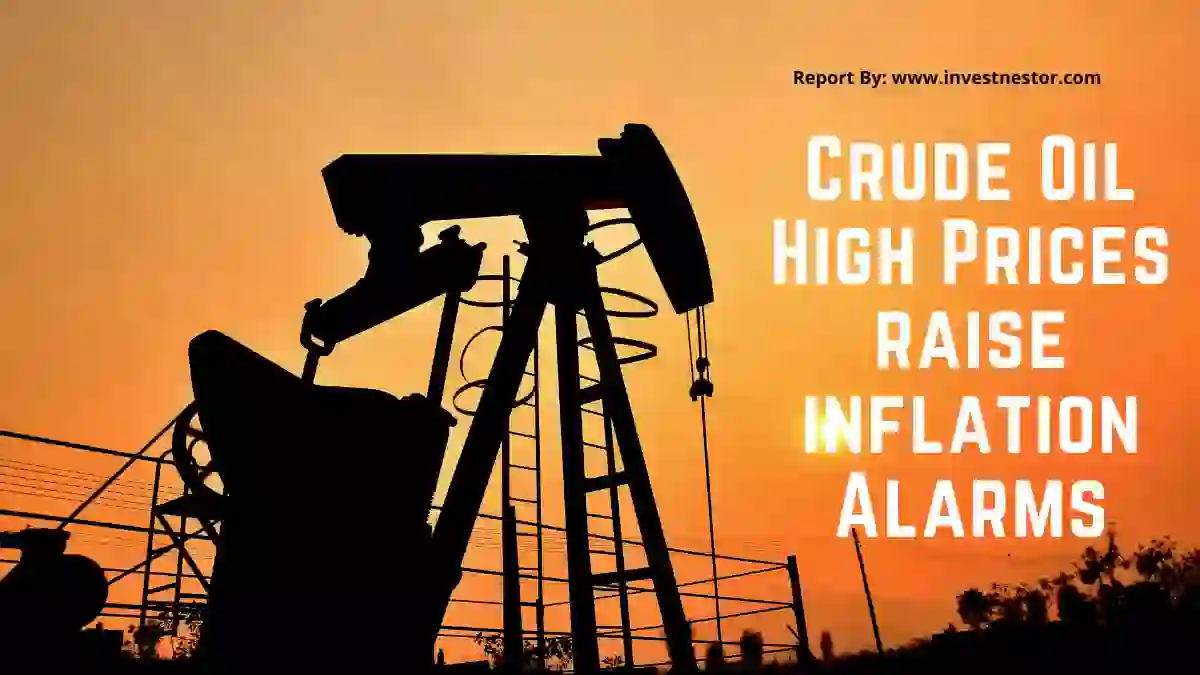
How do Crude Oil prices affect the Global Economy?
Crude oil has started making headlines again due to its surging prices, reaching a 10-month high in the last few weeks. Rising demand across the globe, along with cuts in crude oil production, are acting as some of the most significant underlying factors of this price surge. India is one of the biggest consumers of crude oil and therefore plays a major role in this global shift, which will affect the country in the long run. Let’s dive deep to understand the reasons behind price surges and their overall impact on the economies.
Reasons Behind Rising Crude Oil Prices
Nothing happens without reason. Similarly, oil prices cannot reach this high without having some underlying reasons behind them. In early 2023, Brent Crude, a Crude oil price benchmark, saw a massive increase of 25%. So, let’s talk about some of the major factors behind the rising prices of oil to get a better picture of what is happening.
1. Production Cuts
One of the key drivers of oil price surges is production cuts voluntarily done by the major oil-producing countries across the globe. The major oil-producing countries are the OPEC+ (coalition of oil producers consisting of 13 countries) and Russia. They are responsible for the production of around 40% of global crude oil. But From June 2023, OPEC+ has voluntarily cut 3.6 million barrels per day in production, and Saudi Arabia itself has cut 1 million barrels per day. Alongside OPEC+ countries, Russia, too, in August announced cutting oil production till 2024. Production cuts will continue till 2024, causing a shortage in the supply of crude oil globally.
2. Increasing Oil Demand
On one hand, crude oil production is being reduced by some of the major producers, While on the other hand, the oil demand is at an all-time high. According to the International Energy Association, the demand for crude will reach 102.2 million barrels per day in 2023, which is a historical high. Almost all the big countries and their industries are contradicting this surge in demand. However, China remains at the front of rising demand, as they hold their position as the largest oil importer due to their flourishing petrochemical industries.
3. Sudden Geo-Political Decisions
Another factor that affects oil prices is any type of sudden geo-political decision. As mentioned above, Russia and Saudi Arabia suddenly announced their oil production cut decision to bolster the oil prices globally. Now, they wanted to strengthen the oil prices, but their decision caused a sudden panic among the countries and increased the demand exponentially in just a few months. This led to a big gap in supply and demand, thus leading to an upward trajectory of oil prices.
Implications Of Crude Oil Price Surge
Now as the oil prices are on the rise, there is no two-way about the fact that this will leave a long-lasting effect in the global economies. So, let’s talk about some of the implications of price rises in various countries, specifically India.
1. Rise in Fuel Prices
As the cost of crude oil goes upward, oil marketing companies across the globe will eventually increase the cost of fuel like petrol and diesel. This will directly affect the general public and various industries depending on these fuels. It will lead to inflationary pressure increasing the price of the goods and services, affecting the general public's purchasing power.
2. Increased Vulnerability
When it comes to crude oil, multiple countries, including India, depend on oil imports. This makes these economies more vulnerable to oil price fluctuations. As price keeps moving upward, these countries will slowly suffer due to the swelling Import Bill. This will lead to relying on foreign exchange reserves and external loans, thus impacting the trade balance and trade terms negatively.
3. Fiscal Deficit and Currency Depreciation
One of the biggest risks that India faces due to the oil price increase is fiscal deficit and the decreasing value of the India Rupee. As oil prices increase, the value of India's Rupee will drop against the US Dollar, thus making crude oil even more expensive for the country. Increasing oil prices will lead to increased costs of Crude oil products like LPG, petrol, diesel, and Kerosene will increase the gap between the controlled oil prices and market price. This will increase the government's subsidy burden, leading to an eventual fiscal deficit.
Summary
Crude oil plays a big role when it comes to the modern world run by modern industries. Whether small or big, every country needs substantial crude oil to run their industries and meet general public demands. Now that oil-producing countries are limiting their oil supply, it will impact the countries with high import dependency globally. It will also impact the countries' economic growth, as industries with high energy costs will become vulnerable, impacting the GDP. It will be crucial for the countries to navigate these challenges in the upcoming years to avoid inflationary pressures and economic downturns.
Also Read:





0 Comments
Add a comment